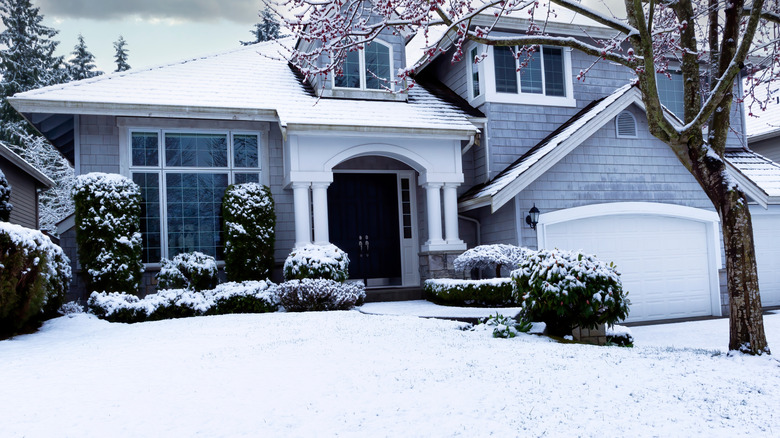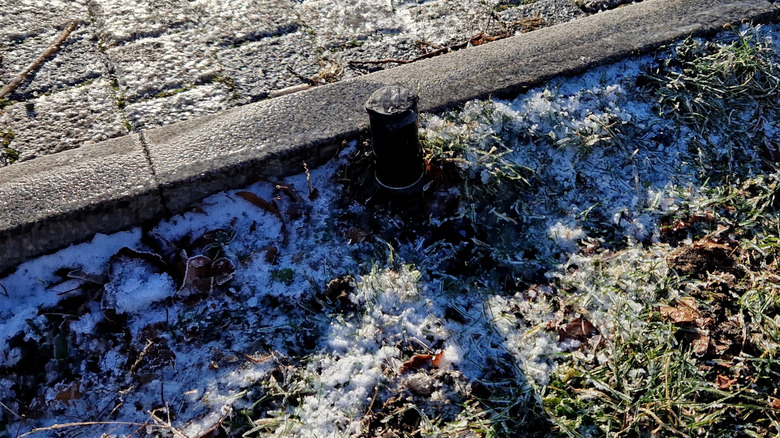The Dangerous Sprinkler Mistake To Never Make In Freezing Weather
When freezing winter weather rolls in, you must prepare your home to avoid damage. This includes learning how to winterize your lawn and the exterior of your home. You might already know that taking care of outdoor faucets and hoses is an important part of this process, but don't overlook your sprinklers. The dangerous mistake homeowners often make is forgetting to shut this system off ahead of winter weather. If sprinklers continue to run during freezing temperatures, the water that comes out will solidify into slippery patches of ice. Sprinklers that haven't been shut off can also break and lead to all sorts of damage.
Depending on where you live, leaving your irrigation system on during winter may even be illegal. You probably want to avoid having to pay any fines associated with this since the damage caused by a frozen sprinkler system can be pretty pricey to repair itself. To put things into perspective, water that freezes inside the system's components can cause damage ranging from broken sprinkler heads to flooding inside of your home or yard. Sprinkler repairs can cost anywhere from $130 to $360. Additionally, flood damage repair is priced from $1,200 to $5,000 on average. Luckily, you can avoid paying thousands by shutting off your sprinklers ahead of winter to stop this damage from occurring in the first place.
Leaving a sprinkler system on during winter can cause serious damage
Let's dive further into the types of damage that may occur if you fail to turn your sprinkler system off before temperatures drop. The main issue is that water remaining inside of the pipes will freeze and expand. Since pipes do not stretch to make room for this ice, they may crack or even burst. You are then at risk of flooding. Unfortunately, the water could even make its way inside of your home and lead to damage there as well. Other damage caused by freezing includes broken valves, cracked sprinkler heads, or sprinkler lines that no longer work. As if all of this wasn't enough to worry about, sprinkler water that floods into your driveway or the street can create a hazard once it freezes into slippery ice. Sure, you can use vinegar as a hack to melt the winter ice, but it's probably best to avoid that headache altogether.
To properly prep your sprinkler system for winter, you will need to refer to the manufacturer's manual for guidance. For sprinklers with automatic drain systems, you will typically need to turn off your outdoor water supply, release the water pressure by running a sprinkler head, and then initiate the automatic draining process. If you have manually draining sprinklers, turn off the water supply, open all of your manual valves so that they can drain, and drain the backflow valves once done.

